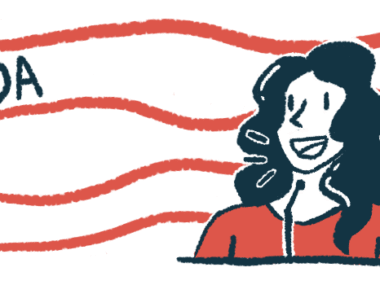Disabled Folks Have a Right to Exist and Celebrate Ourselves
Look around and examples of ableism abound. That must change, writes Young Lee
Written by |

On Halloween evening, I sat outside on a beach chair with a tub of candy in front of me. It had been a long time since I last handed out Halloween candy to the neighborhood kids.
The past few years, of course, were disrupted by the pandemic. But this year, I knew I wanted to take advantage of the opportunity to connect with my neighbors and their children. After all, the feeling of community among neighbors is something that seems to be on the decline these days.
But that night, I was struck by something a bit different about the kids compared with years past. Many of the trick-or-treaters seemed a little nervous. I suspect it may have had something to do with the pandemic forcing young people inside with few opportunities to interact with strangers.
I tried my best to be encouraging. I wanted to impress upon them that, as neighborhood kids, they have as much right to be out and about as anyone else.
Examples of ableism
Seeing some of the nervousness on their faces reminded me that there are instances when I, as a guy with Charcot-Marie-Tooth (CMT) disease, feel a similar way. It’s something I’ve seen among many people in the disability community. I think we tend to internalize the narratives we see in society, such as that we’re a burden or we don’t belong in certain environments.
In the media, portrayals of disability are often limited to hospital scenes and “inspiration porn,” as if disabled folks are defined by illness. Some companies seem afraid to promote accessibility in advertisements, as if being affiliated with the disabled community would hurt their brand. Some gamers seem outright hateful of the notion that a game can be accessible to disabled folks. In gyms, not only do fitness advertisements seem to have a narrow definition of “wellness,” but also a lot of gym equipment and areas aren’t friendly to those with limited mobility.
All of these things contribute to a common narrative that disabled folks aren’t allowed to be anything more than patients — that there are places for the able-bodied and completely separate places for the disabled.
It’s a shame, and I think it’s wrong. Disabled folks have a right to exist and celebrate ourselves — our complete selves — as much as anyone else. We’re not imposing a burden on anyone just by existing. And we don’t deserve to be ashamed of being seen out and about.
It’s important for those of us in the disabled community to remind ourselves of this. Oftentimes the most difficult negative narrative to manage comes from within.
I’ve often struggled with such things, the internalized narratives that tell me I don’t belong. I remember having these doubts when I started going to the gym more regularly. I felt as if I ought to be ashamed of the way my body looked or the limited ways it could move.
Similar thoughts crossed my mind when I went to concerts. I questioned whether I would be in the way of the crowd if I walked too slowly or if my ankle-foot orthoses would create a scene at the metal detectors.
But just like the kids in my neighborhood on Halloween night, everyone deserves to feel like they have a place. Sometimes we need to remind others. And sometimes we need to remind ourselves.
Note: Charcot-Marie-Tooth News is strictly a news and information website about the disease. It does not provide medical advice, diagnosis, or treatment. This content is not intended to be a substitute for professional medical advice, diagnosis, or treatment. Always seek the advice of your physician or other qualified health provider with any questions you may have regarding a medical condition. Never disregard professional medical advice or delay in seeking it because of something you have read on this website. The opinions expressed in this column are not those of Charcot-Marie-Tooth News or its parent company, Bionews Services, and are intended to spark discussion about issues pertaining to Charcot-Marie-Tooth.







Leave a comment
Fill in the required fields to post. Your email address will not be published.